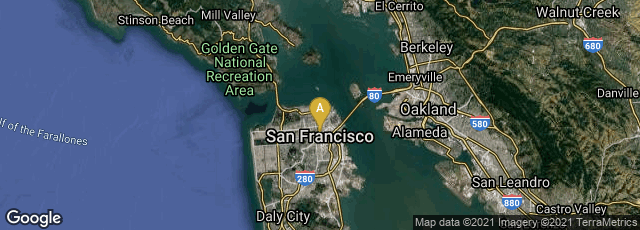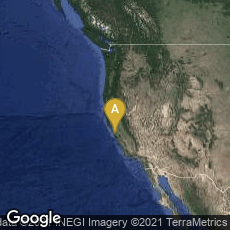

A: San Francisco, California, United States
In March 1994 issue of Wired Magazine John Perry Barlow, sometime lyricist for The Grateful Dead, published an article entitled The Economy of Ideas. A framework for patents and copyrights in the Digital Ages. (Everything you know about intellectual property is wrong.)
This, or a very similar text, was also issued under the title of: Selling Wine Without Bottles: The Economy of Mind on the Global Net. This essay, written in Barlow's poetic language, represented his theory of the way that digitization and distribution over the Internet was changing the economics of information. When I returned to this essay in 2020 I found on the website of the Electronic Frontier Foundation. After a long quotation from Thomas Jefferson, Barlow began this way:
"The riddle is this: if our property can be infinitely reproduced and instantaneously distributed all over the planet without cost, without our knowledge, without its even leaving our possession, how can we protect it? How are we going to get paid for the work we do with our minds? And, if we can't get paid, what will assure the continued creation and distribution of such work?
"Since we don't have a solution to what is a profoundly new kind of challenge, and are apparently unable to delay the galloping digitization of everything not obstinately physical, we are sailing into the future on a sinking ship.
"This vessel, the accumulated canon of copyright and patent law, was developed to convey forms and methods of expression entirely different from the vaporous cargo it is now being asked to carry. It is leaking as much from within as without.
"Legal efforts to keep the old boat floating are taking three forms: a frenzy of deck chair rearrangement, stern warnings to the passengers that if she goes down, they will face harsh criminal penalties, and serene, glassy-eyed denial.
"Intellectual property law cannot be patched, retrofitted, or expanded to contain the gasses of digitized expression any more than real estate law might be revised to cover the allocation of broadcasting spectrum. (Which, in fact, rather resembles what is being attempted here.) We will need to develop an entirely new set of methods as befits this entirely new set of circumstances....